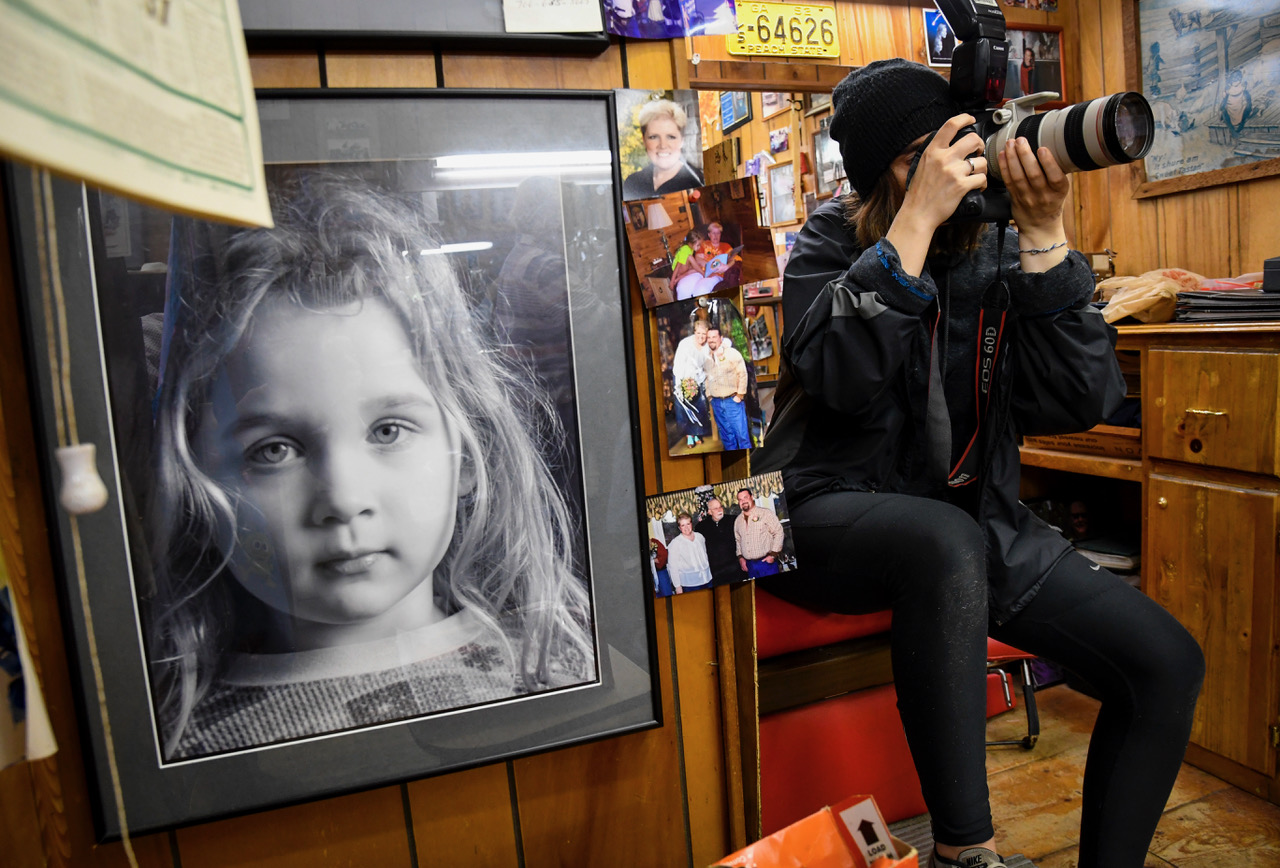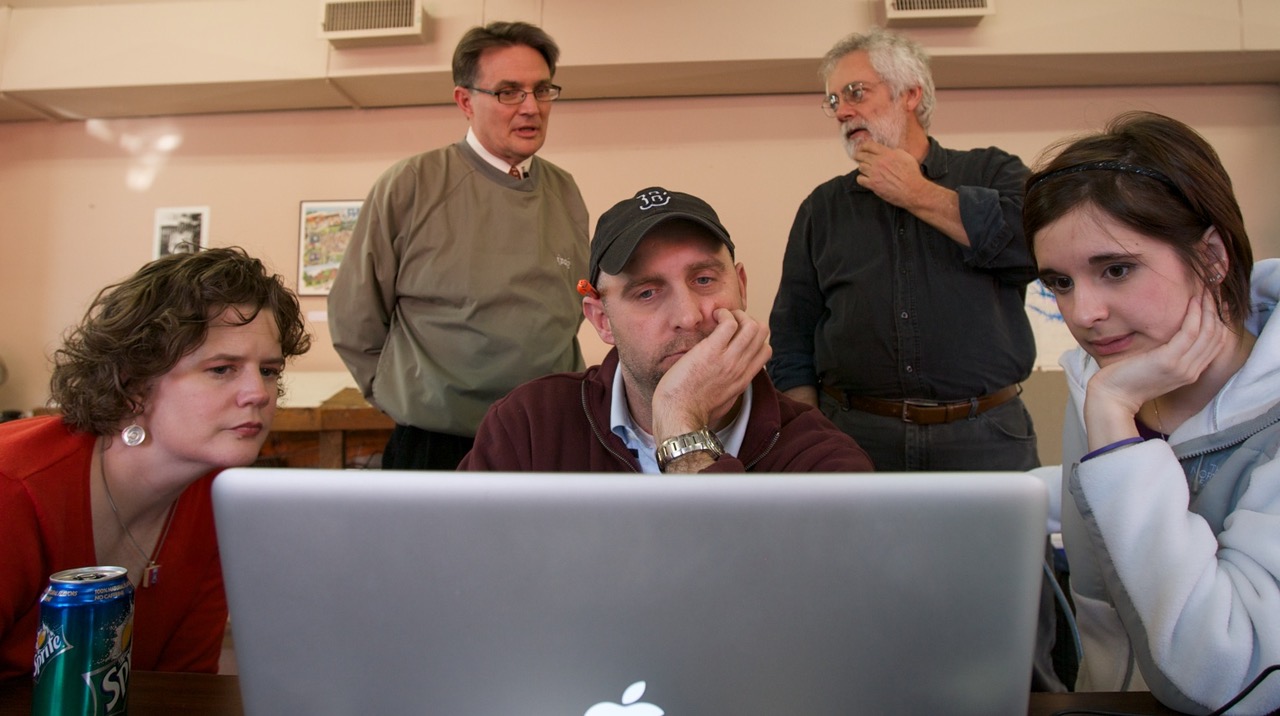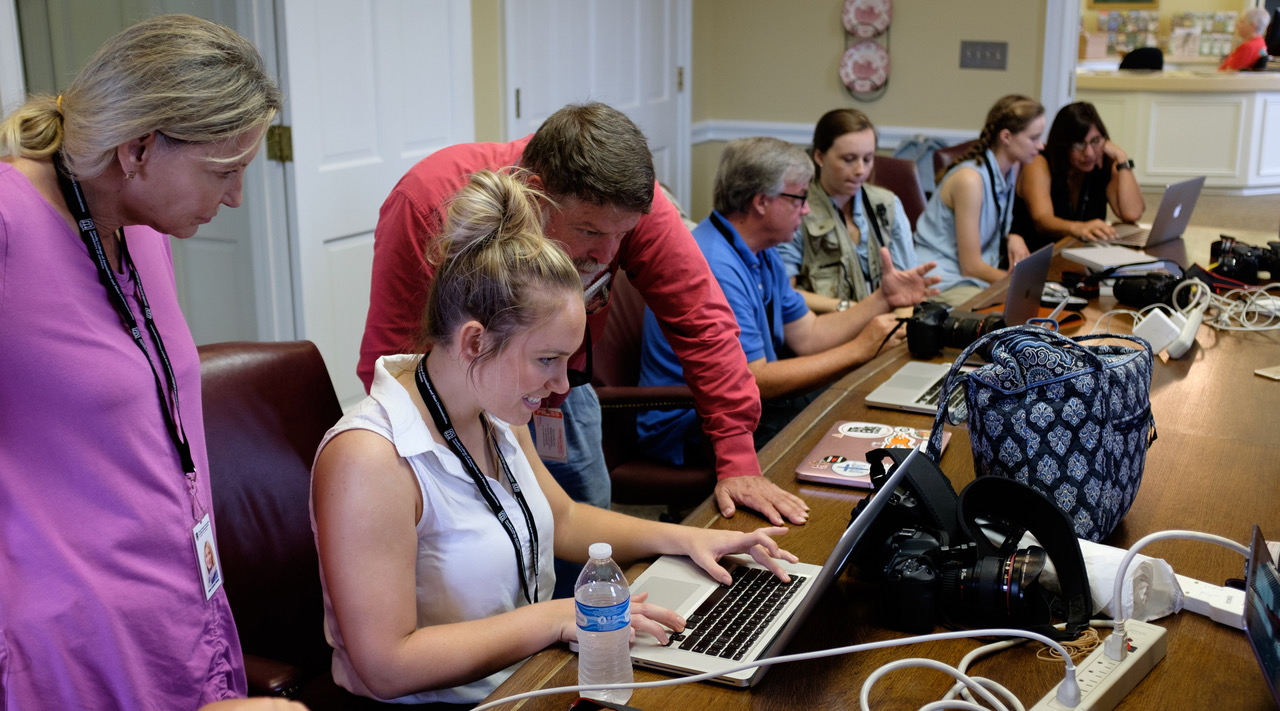By Caroline Embleau
Gary Jones, publisher of the Elberton Star newspaper, didn't think there would be enough stories to tell in his small, rural community of north Georgia. But Mark Johnson, University of Georgia lecturer, told Jones that he wasn't worried about his students finding stories to tell.
In 2010, 16 students from Johnson’s photojournalism class at the school’s Henry W. Grady College of Journalism and Mass Communication went into Elberton County, engaged with the community and produced a story each in a partnership with the Elberton Star.
As the class worked, Jones "spent almost every minute looking over the shoulders of students,” said Johnson, adding, “He was just amazed at the stories that these students found."
Called the Woodall Weekend Workshop, each spring Johnson coordinates the class between a rural Georgia newspaper and UGA. The workshop takes place over a March weekend in a different community every spring as a part of the documentary photojournalism class, said Johnson.
Industry professionals are selected by Johnson to coach students depending on their needs during this partnership workshop.
The class spends the first half of the semester studying that spring’s chosen county and then prepares two stories — one as a primary and one as a backup. The students execute their stories over the course of the weekend workshop.
Students' stories range from profiles of local celebrities, businesses and family-owned stores, Johnson said, or "whatever it is they happen to find. He encourages his class to focus on "the place and the faces.”
"We want them to produce a set of images that show us what the county looks like ... everything from the geography to the architecture … and the faces of the county," he said.
The partner newspaper publishes the stories and photographs after students complete them.
When the class previously worked in White County one semester, students did enough stories for the partner newspaper to publish one every other week for the rest of the year.
Johnson said the importance of understanding agriculture in Georgia is one reason for this workshop.
"So many of [the students] don't have any experience going into agricultural communities," Johnson said. "For them to get a better understanding of the state that they live in ... it is critical as journalism students to understand that stories come in all different styles, that the people that consume those stories…have very different backgrounds from themselves."
Another weekend workshop takes place in the fall at the Georgia National Fair. An advanced photojournalism class spends roughly 17 hours there; the students arrive around 7:30 a.m. on a Saturday and leave the fairgrounds at midnight.
A partnership with the Perry Area Convention and Visitors Bureau — which hosts the fair — allows students to consult with professionals on aspects like lighting, storytelling, and composition.
Johnson said the goal of the fall workshop is to document a cherished community event.
"Don't show us what the fair looks like; show us what it means," Johnson tells his students. "We want them to look at not just the carnival rides, games, food and the entertainment stuff — that's [only] half of the fair. The other half is the livestock competitions [and] the history stuff."
Johnson said he believes it’s essential for students to “see parts of their state that they normally wouldn’t see,” and the fair allows them to do this.
Some of the student’s work in recent years has been published by the Atlanta Journal-Constitution, the state’s largest newspaper. In the past, UGA students have also been published in the Macon Telegraph and through Georgia Public Broadcasting.
 Many UGA photojournalism students go on to community-level reporting jobs for smaller publications, said Johnson.
Many UGA photojournalism students go on to community-level reporting jobs for smaller publications, said Johnson.
"These kids are going into businesses, hospital rooms, and they're going into people's garages and barns and walking their fence lines with them to experience what it means to live in these communities," said Johnson. "Even if they don't take that into journalism, that opens them up to worlds and experiences that a textbook will never do."
Johnson advises colleges looking to replicate programs like this to "start small."
"I'm a minimalist, so I try to spend as little time organizing as possible, but use my time wisely," he said. "Think carefully about who [the] coaches are and the student's needs."
Johnson said, "We all live in our own little bubbles; journalism is designed to let you see outside of your own bubble."
When students tell local stories, the community response often mirrors Jones' from that weekend spent in Elberton County years ago.
"The Woodall workshop helps the community understand what's going on," said Johnson. "That's public service and outreach — to help these counties understand the stuff happening all around them."
For more information:
Woodall Weekend Workshop Archives
Georgia National Fair Archives

